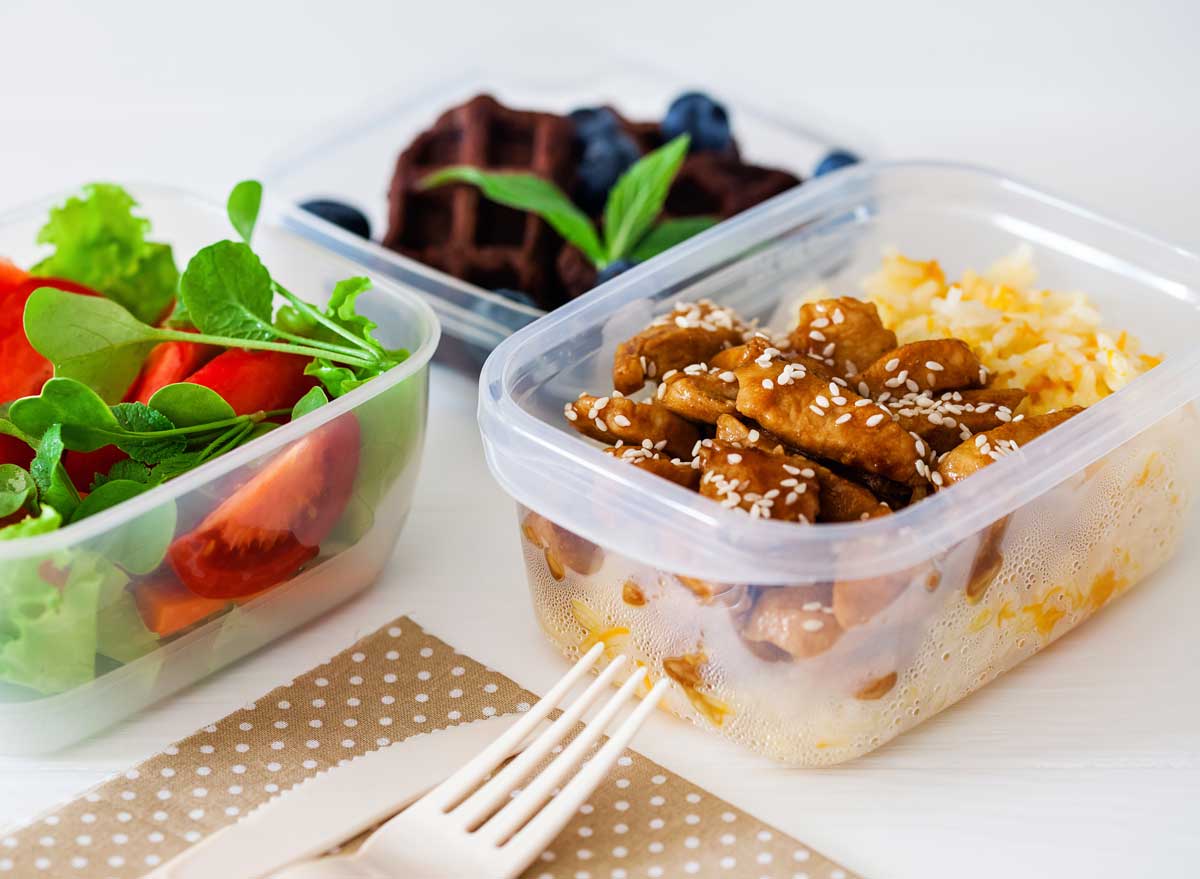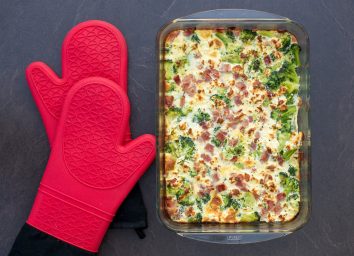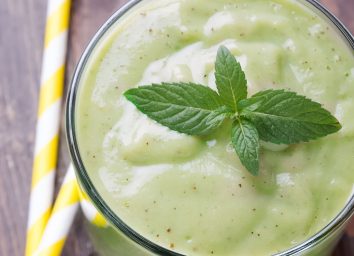The One Thing You Need To Know Before Eating Leftovers

It sure feels good to have a giant meal prep session in your kitchen on a Sunday. You fill up your fridge with all kinds of nutritious foods, making it much easier to eat healthy throughout the week. But we couldn't help but ask ourselves: If you prep the same meals to eat leftover, is it bad for your body to not be getting the nutritional benefits of other foods by eating leftovers day-after-day?
In order to determine if eating the same meal twice (or each day of the week) is actually healthy for you, we spoke with two registered dietitians on the matter. In short: if the quality of your meal is good, eating the same thing every day is fine. But when you sit down and plan your meals each week, that's your chance to write in some nutritional variety to your diet.
Nutritionists say eating the same meal again is fine, depending on what's in it.
"You can achieve a healthy eating plan by eating the same thing every day if your pre-prepped or daily prepped meals offer a variety of nutrients," says Toby Smithson, MS, RDN, CDE, Founder of DiabetesEveryDay and author of Diabetes Meal Planning and Nutrition for Dummies. "Think about following a balanced plate method—half your plate with vegetables, one quarter with protein and one quarter with carbohydrate."
While this particular formula works well for easy meal prepping, the types of foods that fill your plate also matter. Vanessa Rissetto MS, RD, CDN and co-founder of Culina Health, says that consuming red meat multiple days in a row is not the best solution for your health.
"If you made a dish with a lean protein (such as chicken or ground turkey), some sweet potatoes, and some non-starchy veggies, it is absolutely fine to eat it two days in a row," says Rissetto. "If you made something with red meat, and a bit more saturated fat, you might want to save it for another day, or offer it to someone else in your home."
Rissetto says that vegetables, lean proteins, and starches (portioned correctly) are great to eat multiple days in a row. However, if you make a decadent dish that is heavier in saturated fat, be mindful of how often you're eating it.
"If it's something you know you shouldn't be having multiple days in a row, try only making enough for one day," says Risetto. "I'm thinking things like cream-based pasta dishes, or higher carb, higher fat dishes. Try and be mindful of only making enough for one meal."
Prep a variety of foods week-after-week.
Both Smithson and Rissetto claim that having the same meal again is perfectly fine, with the caveat of what's actually on your plate. However, when it comes to looking at your meals on a weekly basis, both nutritionists recommend changing it up from time to time.
"You want to eat a large variety of foods," says Rissetto. "Think about it—different foods have different nutrients. If you're eating the same foods every day, you're getting those same nutrients every day, and you're missing out on others."
"For a simple way to add more variety (both taste and nutrition) you can easily swap your fruits and vegetables each day on your plate," says Smithson. "To be honest, as a registered dietitian, I essentially eat the same breakfast and lunch every day myself, swapping fruits and vegetables with the season."
What does this look like in terms of meal prep?
"I totally get that it's sometimes easy to just make the same lunches for the week," says Rissetto. "That's cool, but if that's your method, make sure you're changing it up week to week. If you made turkey sandwiches on whole wheat with carrot sticks and clementines this week, next week make a chicken and veggie pasta salad served over a bed of spinach, with some cherries on the side."
When it comes to picking which meals to have, Risetto's decisions start when she writes up her grocery list for the week. She'll evaluate what she had in previous weeks, and will choose different types of foods that she hasn't had in a while.
"Include at least one different veggie (meaning one that you didn't get last week or the week before—think eggplant, zucchini, asparagus, bell peppers, arugula instead of spinach), one different fruit (cherries instead of grapes, peaches instead of apples), one different protein (ground turkey instead of chicken, salmon instead of cod), and one different grain/carb option (farro instead of brown rice, bean-based pasta instead of regular pasta)," says Rissetto. "This is a great way to incorporate different nutrients into your diet without having to put too much thought into it."
Smithson also says your food choices between meals can also be opportunities for added nutrients in your diet. She recommends tree nuts as one of them because one study shows how tree nuts (like almonds) can increase overall nutrition.
"Nutrition is key to maintaining energy levels and feeling your absolute best," says Smithson.
For even more healthy eating and meal prep tips, sign up for our newsletter.








